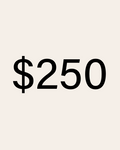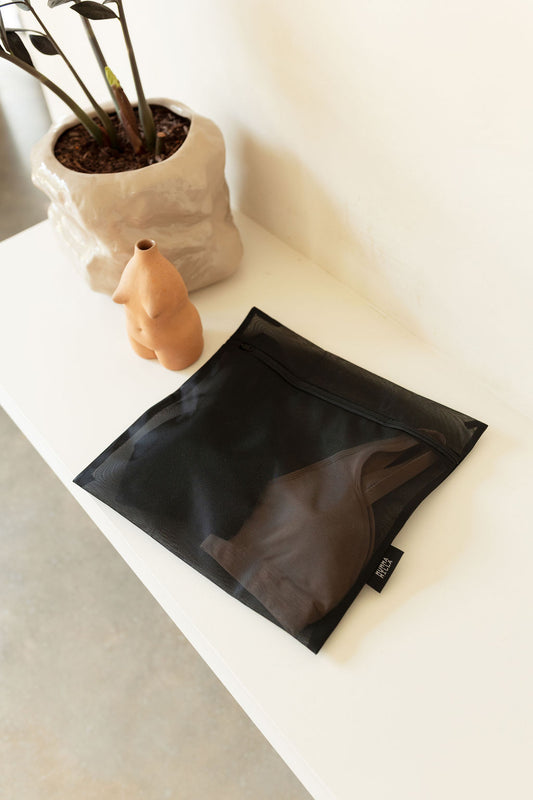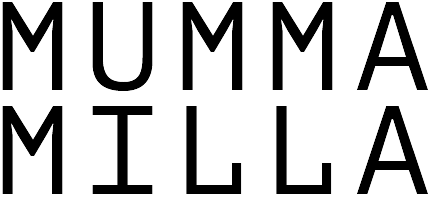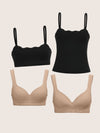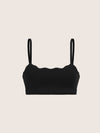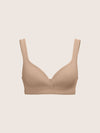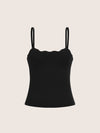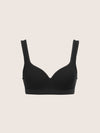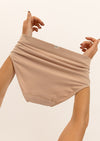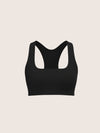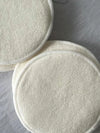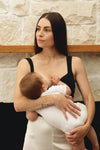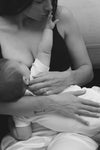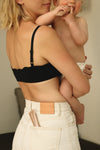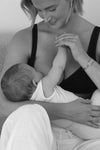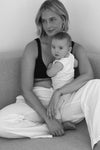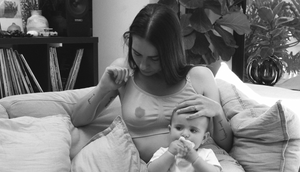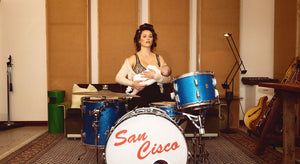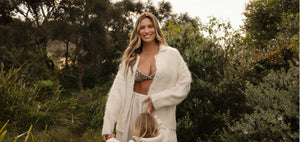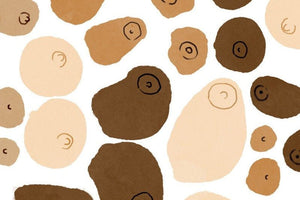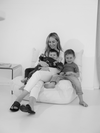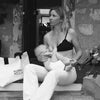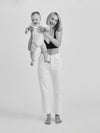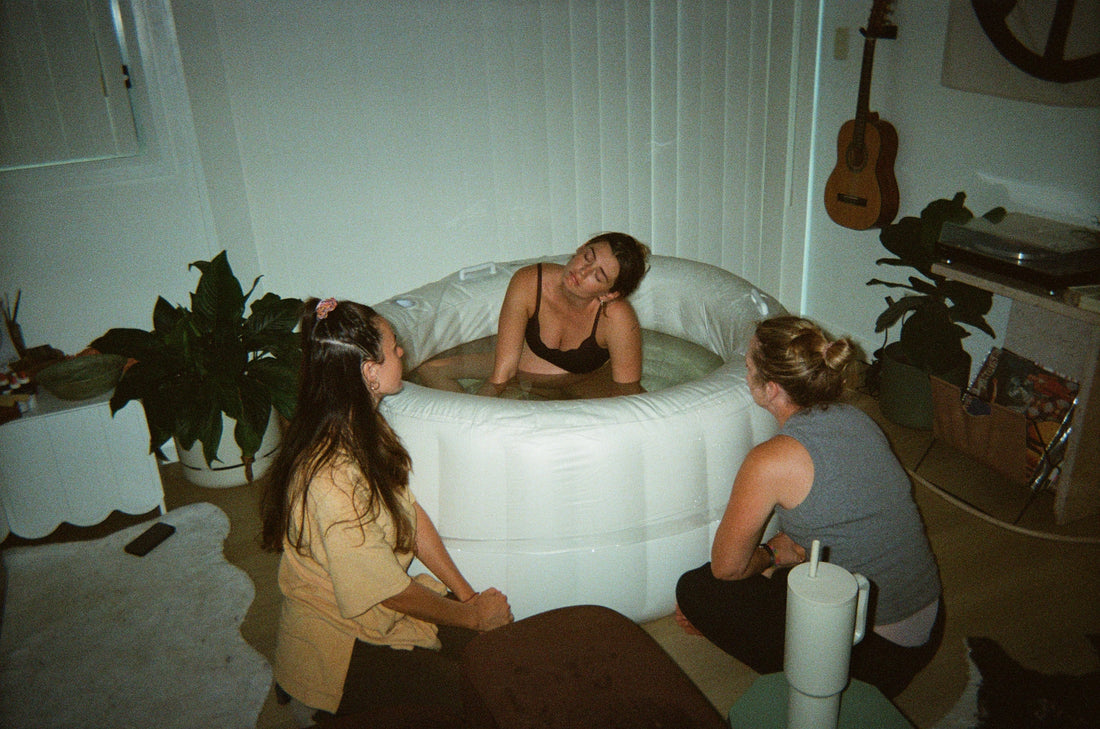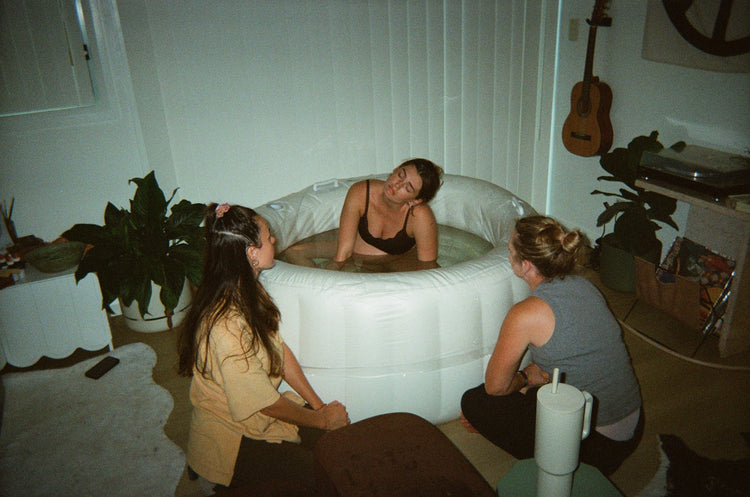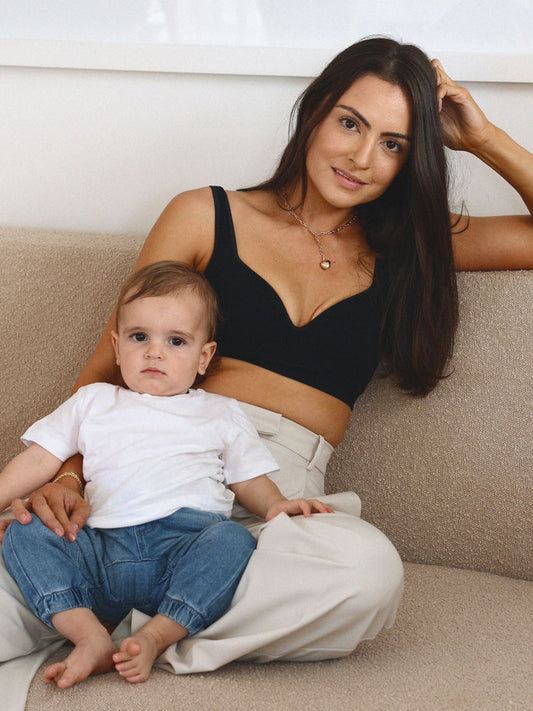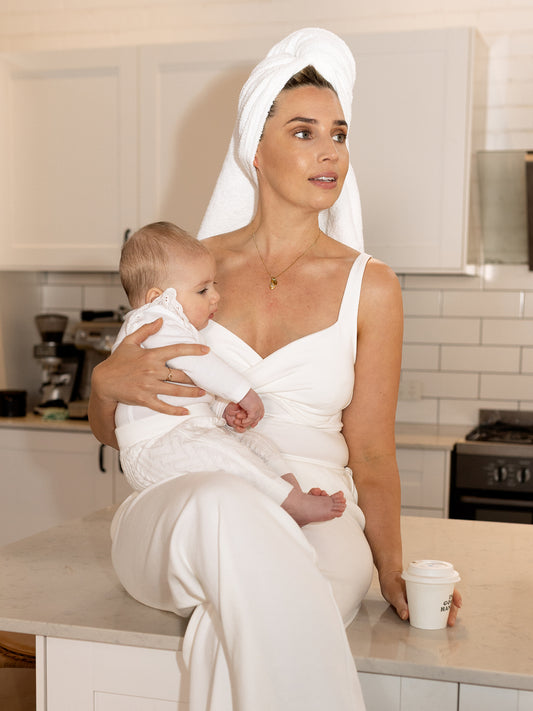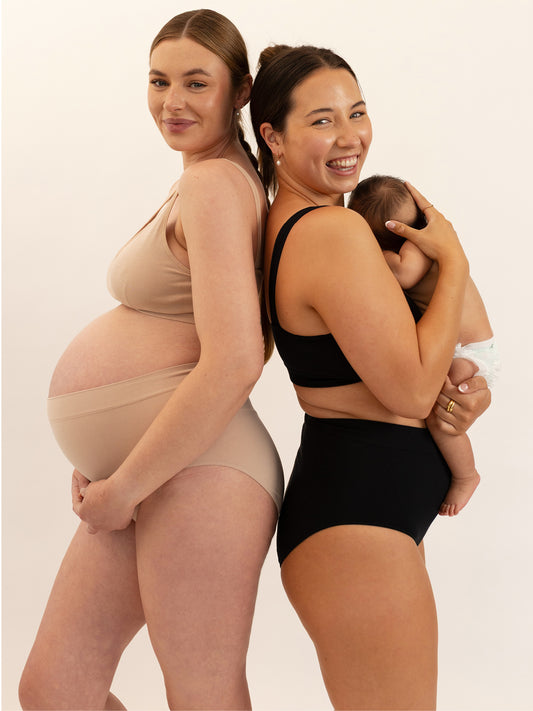Clare Keys from The Womb Rooms joins us for a special Mother's Day M. Magazine, talking about 'Matrescence' and the changes we experience entering into our new role of motherhood.
Clare has been a Registered Midwife for the past 15 years, working within the hospital system. In recent years, she's expanded her qualifications to become an Endorsed Midwife and an International Board-Certified Lactation Consultant (IBCLC).

2. Tell us how you have created a space and service to help mums post-birth?
There’s so much I love about this work. The connections I form with women and families are incredibly special; there’s something uniquely powerful about the relationships built in and around birth. It’s such a vulnerable time, and being invited into that space to listen, support, and walk alongside someone is an privilege I never take for granted.
I love witnessing those moments when mothers feel confident and things fall into place and equally, I value being there when things feel hard or don’t go to plan, helping them feel held and less alone. One of the most rewarding parts is helping families understand what’s truly “normal” in those early weeks, so they can let go of stress and find more joy in the experience.
3. Giving birth and the postpartum period is such a transformative phase for the mother.
What can you tell us about this phase?
Matrescence is a profound transition a woman goes through as she becomes a mother.
"I see first hand how this period reshapes a woman’s identity, not just physically but emotionally, mentally and socially too. There’s a deep shift that unfolds as mothers begin to navigate who they were, who they are now, and who they are becoming."
Some feel joy and immense love and a sense of peace, others feel grief or resentment for their former selves, and most feel a complex mix of both. It’s not a linear journey. I often remind mothers that these feelings are not only normal but expected.
When we acknowledge matrescence, as caregivers we help mother understand these changes and give them permission to embrace their growth.
4. What are some of the physical changes we can experience the first few weeks post-birth?
There’s a wide range of physical changes women can experience in the first few weeks after birth, and these can vary depending on the type of birth and individual circumstances. Some of the more common changes include:
Bleeding
Post-birth bleeding can last up to six weeks. It usually starts bright red, then gradually changes to brown, yellow, and becomes lighter and more watery. You might notice heavier bleeding when breastfeeding or after physical activity, this is your body’s way of telling you to slow down.
Breast changes
If you're breastfeeding, you may experience fullness, engorgement, lumpiness, or leaking. These changes are part of your milk supply adjusting to your baby’s needs.
Postpartum sweats and temperature fluctuations
Many women experience intense night sweats in the early weeks. This is a normal response to hormonal shifts and the body shedding excess fluid, but it can feel
quite intense.
Afterbirth pains
These are cramp-like sensations caused by the uterus contracting back to its
pre-pregnancy size. They often feel stronger during breastfeeding and tend to be more noticeable with second or subsequent babies.
Pelvic floor and perineal sensations
Even without stitches or tearing, many women feel heaviness, stinging, or
weakness in the pelvic area. This is a normal part of the healing and
recovery process as tissues and muscles begin to repair.
Wound discomfort
If you’ve had a caesarean or perineal stitches, it’s normal to feel tenderness,
stinging, or a pulling sensation as the wound heals. However, any increase in pain, redness, swelling, discharge, or an unusual smell should be checked by a healthcare provider.
Constipation
Hormonal changes, reduced mobility, pain relief medications, or fear of discomfort can contribute to constipation in the early postpartum period. Staying hydrated, eating
fibre-rich foods, and moving gently may help.
If something doesn’t feel normal it probably isn’t, and I would encourage any women in this position to reach out to their caregiver.
5. Emotionally, there are significant shifts when entering motherhood too. What do you advise mums about this?
When mums understand this and know what to expect, it often helps them feel
more grounded.
"The emotional shifts that come with motherhood are huge and largely driven by some of the most radical hormonal changes we’ll ever experience in such a short amount of time."
The “day 3” baby blues are regularly discussed, but emotional ups and downs can continue well beyond that. Perinatal anxiety is also common and can bring unexpected or intrusive thoughts that can feel unsettling, but they’re often a normal part of this transition.
Feelings like frustration, anger, guilt or resentment can take new mums by surprise and feel overwhelming. I always check in emotionally to validate what’s normal, offer reassurance, and help women recognise when they might need further support.
Reassurance and connection during this time can make all the difference.
6. Breastfeeding can be easy for some/ hard for others. What are your tips to mums for a successful breastfeeding journey?
Breastfeeding can be a beautiful and rewarding experience, but it’s also a learned skill, and it’s completely normal for it to come with challenges, especially in the beginning. Here are my top tips for setting yourself up for a positive breastfeeding journey:
Prepare during pregnancy
Antenatal breastfeeding education is invaluable. Whether it’s through your hospital, an online course, a private workshop, or one-on-one with an IBCLC, learning what to expect in those early days helps take the pressure off when you’re also recovering, navigating hormonal changes, and getting to know your baby. Understanding normal newborn behaviour, how milk supply is established, and common early challenges can make a huge difference.
Line up support early
Know who to reach out to if you need help, ideally a qualified IBCLC or someone experienced in evidence-based breastfeeding support. Also, communicate with your partner and support network ahead of time about how they can help you in the early weeks. Practical help such as meals, housework, looking after older kids – this frees you up to rest and focus on feeding and bonding.
Set realistic expectations
Breastfeeding is natural, but that doesn’t mean it’s always easy.
It can be time-consuming and demanding, especially in the beginning. Newborns feed frequently, not because you’re doing something wrong, but because that’s how milk supply is established and how babies grow. Going into it knowing that it’s normal to feel physically and emotionally stretched at times can help reduce feelings of disappointment or self-doubt.
Listen to your body and trust your instincts
Pain is not something to push through, persistent nipple pain, ongoing latching difficulties, or concerns about supply are signs to seek help early. The sooner issues are addressed, the better the outcomes.
Know that flexibility is strength
Every feeding journey is unique. Some mums exclusively breastfeed, others combine feeding methods, and some need to pivot entirely. Feeding your baby in a way that protects both their health and your wellbeing is what matters most.
7. The expectation to "bounce-back" after birth is something society (incorrectly) feeds to mothers.
What are your tips for recovery?
One of the most important messages I share with new mothers is this: “your only job in the early days is to rest, feed yourself, and feed your baby”. If anything, else happens on top of that, it’s a bonus - not the expectation.
"Recovery after birth takes time, and honouring that process sets the foundation for long-term health and wellbeing."
Other important tips include:
Nourishment
Focus on whole foods, especially those rich in protein and healthy fats to support tissue repair and energy. Hydration is also crucial—especially if you're breastfeeding, as fluid needs increase.
Rest, rest, and more rest
Your body has done something extraordinary. Sleep when you can, lie down often, and don’t feel guilty about doing "less." Healing takes priority.
Breastfeeding support
Early feeding challenges are common. If something feels off; pain, latch issues, baby not settling, t’s worth checking in with an IBCLC early to prevent small issues from becoming big ones.
Pelvic floor and abdominal support
Postnatal physio, can help with healing and recovery. Support garments or compression wear can also offer comfort and support.
Comfort measures
Ice packs, heat packs, peri bottles, and gentle care of any wounds or stitches
can ease discomfort and promote healing.
Emotional recovery
You’ve just gone through a huge physical and emotional transformation. Check in with yourself and others often.
Bouncing back quickly doesn’t do anyone any favours.
Be gentle, go slowly and enjoy the ride.
8. How long does it take for a mum to start feeling
like themselves again?
If I’m honest, you don’t really go back to your old self after birth, and that’s not a bad thing. You grow into a new version of yourself. That’s matrescence.
For some, this shift feels more settled in a few months; for others, it may take a year or longer. It’s a deeply individual process, shaped by birth experience, support, sleep, feeding, mental health, and more.
Instead of trying to “bounce back,” we need to encourage grace and patience. You may still see glimpses of who you were, but there’s also strength in who you’re becoming.
It’s okay if things feel unfamiliar for a while. Becoming a mother is a major transformation, not just a role you take on, it’s a whole new way of being.
9. We hear mums have been wearing Mumma Milla
to The Womb Rooms!
Yes! Lots of my mums are wearing Mumma Milla, and I can completely
understand why… they’re practical and stylish.
Comfort is key in those early weeks, and having a bra or cami that’s soft, supportive, and easy to feed in really helps when your body is going through so many changes.
It’s nice to have something that not only feels good but looks good too. Little things like that can make a big difference to a woman’s overall confidence, especially when
so much feels unfamiliar.
"Postpartum women should feel nurtured, and a comfy, chic bra/cami is
a small but powerful way to do that."

10. Lastly, what does Mother's Day mean to you?
For me, Mother’s Day is a chance to step back from all the unseen work of motherhood - the mental load, the constant anticipation, and the endless organisation. It’s a moment to appreciate my kids and family and reflect on what we’ve created together.
Motherhood is both incredibly joyful and overwhelmingly challenging,
but I wouldn’t change it for the world.
It’s a day to stop, be present, connect, and enjoy the journey we’re on.
Follow Clare and all her wonderful tips on birth, postpartum and breastfeeding
@the.womb.rooms
www.thewombrooms.com.au
Featuring stunning birth images @an_average.jo

